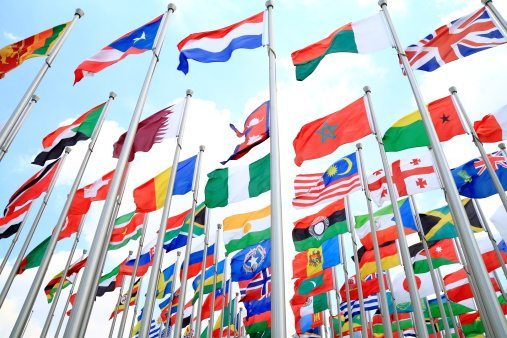 The word Gentiles (plural of Gentile) comes from the Hebrew word Goyim, meaning the non-Jewish peoples of the world. However, there is more to the story. Please, allow me to explain.
The word Gentiles (plural of Gentile) comes from the Hebrew word Goyim, meaning the non-Jewish peoples of the world. However, there is more to the story. Please, allow me to explain.
When God called Abram to go to the land that one day would be called the Land of Israel, He promised him that he would become a great nation (ג֣וֹי גָּד֔וֹל), pronounced goy gadol. However, God’s promise to Abram also included other nations. God said that through Abram all the other families of the earth (מִשְׁפְּחֹ֥ת הָאֲדָמָֽה) would be blessed (Gen.12:1-3).
Adam, pronounced Adam (אָדָ֕ם), and the earth, pronounced Adama (אֲדָמָֽה) from which Adam originated, have the same Hebrew root. This speaks of a strong connection. When describing God’s promise to Abram, Moses purposely used the word for the nations of the world that connected them to Adam. He called them the families of the earth, pronounced mishpachot haadama (מִשְׁפְּחֹ֥ת הָאֲדָמָֽה).
When we come to the Septuagint (Greek translation of the Hebrew Bible) and to the New Testament, both authored in what can be best called Koine Judeo-Greek, we see that the same Hebrew word goyim (גּוֹיִם) is accurately translated as ἔθνη, pronounced as ethnei. This sounds familiar to us because it is from this word that our English words for “ethnicity” and “ethnic” are derived.
It is not until these Hebrew and Greek words are translated into Latin by such words as Gentes and Gentilis that the process of transforming the “nations” into “gentiles” in the English language formally begins.









When you think of “Adam” meaning earth, Abram–> Abraham, the promise to him of a great nation and then to include all the nations of the world in the promise seems so appropriate to me, because of all our common roots begin in Adam, on the earth. Both Jew and non-Jew are made from the same elements from which Adam was made, thus, the world/earth is our common heritage and in Messiah the distinction between Jew and “Gentile” is not to exist (from my understanding) as explained in Galatians 3. As Christ followers, we are commanded to go unto all nations and disciple them by teaching to observe all that was commanded of us by Him. (Matthew 28:18-20)…it is for the Glory of the L-rd to fill the earth like the waters cover the sea.
What a freeing commentary. I agree w/ RamonAntonio’s comment (march 3, 2014) re: “playing w/ fire. But in a very enlightening, helpful way.
Thank you again,
If the Hebrew word ‘goyim meant Gentiles and then it was translated into Greek as ethnei follow by the latin use the word Gentiles that became Gentiles in English, then didn’t it go the full circle, meaning the ethnei should also be Gentiles? Appreciae clarification.
Dr. Eli,
It was a pleasure and joy reading the replies from the text you presented, I needed
that boost of encouragement.
I still think I belong in the kindergarten class.
Lois Stiner
Welcome to our forum, Lois!
Dr. Eli
I just found this site with Dr. Eli and all can say is WOW!
I agree – Gentile is a mis-nomer. Nation(s) is correct. Christian theology has gone off the tangent because of this mis-translation.
Very clear to uderstand. Thank you!